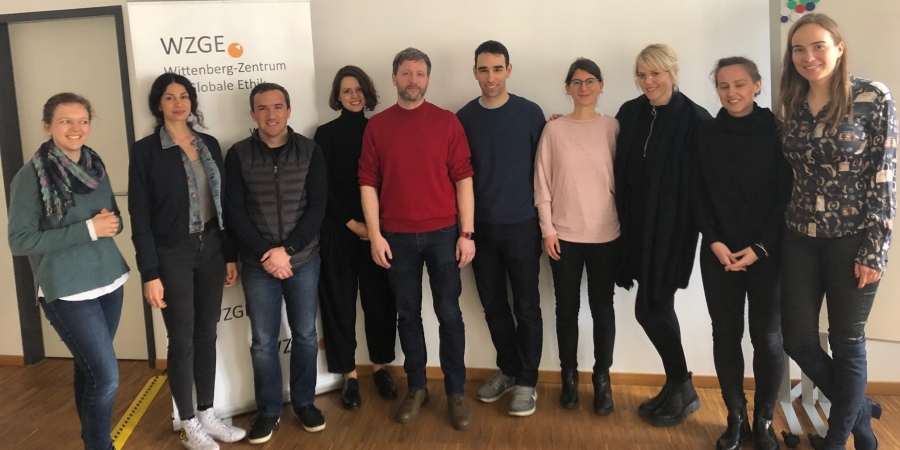Prof Neuhäuser argues for John Rawls idea of a property-owning democracy with ERL doctoral students.
Prof Christian Neuhäuser, professor of political philosophy at TU Dortmund University, visited the doctoral program “Ethics and Responsible Leadership in Business” for a jour fixe. He gave a lecture about “Economic Ethics and Property-owning Democracy”. Neuhäuser first pointed out some common ground of economic ethics and Rawlsian social-liberalism: both theories accept that the market as the dominant institution which needs to be regulated for the sake of justice. Rawls argues that regulation should not be guided by his principles of justice. These principles demand equal basic liberties, equal opportunities with regard to the access of offices and positions, and allow social and economic inequalities only if the least-advantaged group of society benefits from them. If one accepts these principles, property-owning democracy is fairer than welfare capitalism according to Rawls. In a property-owning democracy, income, wealth, and inheritance taxes prevent that a small group can accumulates wealth and capital, and thereby also political power. Neuhäuser defended property-owning democracy against the inefficiency objection. In affluent societies, dispersed capital still can be bundled in fonds. Besides this, many non-monetary incentives, like honour or pleasure in success, exist. Following the lecture, it was discussed how one should define wealth and capita, whether efficiency is a value in itself and why pre-distribution is fairer than re-distribution. Neuhäuser admitted that it would be a great challenge to realize a property-owning democracy. Nevertheless, he stressed that revolutionary but well thought through ideas stand a chance in times of crisis.

